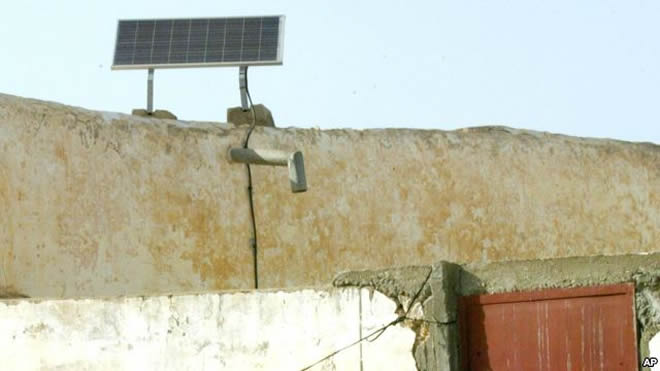
Kenya proposes to put a solar collector on every rooftop.

by Reuben Kyama
Monday, March 16, 2015
NAIROBI— As the world gears up for a new global treaty on climate change in December this year, experts warned that millions of people around East Africa are faced with grave risks from changing disease patterns to extreme weather events, and the threat to food and water security.
Scientists from the United Nations-affiliated Intergovernmental Panel on Climate Change (IPCC) are warning East African nations to brace themselves for extreme weather events related to climate change.
“One thing is for sure,” said Guled Artan, who sat in on a recent regional meeting on climate change. “Man has an effect on climate and the temperature is increasing.” As director of the IGAD Climate Prediction and Applications Center (ICPAC), Artan joined officials representing the membership of the Inter-Governmental Authority on Development (IGAD) at the conference.
“The problem in East Africa is serious,” Artan said.” When there’s rain, the rain will be more intense, so there will be floods. The dry spells will be wider, so there will be more droughts. That’s the risk. So, increased likelihood of floods, increased likelihood of drought; and two extremes: too much water, too little water.”
Experts say global warming is no longer in doubt because since the 1950s many of the observed changes have been dramatic.
Dr. Thomas Stocker gave the scientist’s perspective. “The understanding of these changes and the causes for these changes lies with the increase of greenhouse gases which have led to high levels of carbon dioxide, methane…. in the atmosphere that are unprecedented and are higher than ever in the past at least 800,000 years.”
As the composition of the atmosphere changes, the balance of the planet’s energy changes, “ … this planet has changed, with the consequence… that we will have to live with and adapt to in the future.”
The conference included a working group that watches the impact of these changes in terms of weather patterns like floods.
The working group’s Dr. Chris Field says, “When you look at the African context, the issues that came to emerge in terms of the impacts are those related to food security, water availability and reliability of water supplies…” There are issues he associates with infectious diseases, lowered food security, the inability to protect people’s health, greater threats to “the urban environment including large movements of people from the country sides into the urban environment.”
Don’t wait any longer
We can reduce today’s climate risks by creating climate-resistant development practices, says Dr. Youba Sokona of the working group. Sokona said addressing current vulnerabilities can reduce today's climate risks and contribute to climate-resilient development over the coming decades. But we can’t wait.
“The more we wait, the more difficult and costly it will be,” Sokona said.
“It’s also important to note that climate change is a global common problem that requires international cooperation at different levels as no single country, no single group of countries can deal with it alone.”
Vulnerable populations already suffer from the effects of climate change, and countries such as Kenya face competing priorities. While they support efforts to minimize the emissions of global greenhouse gases, they need to boost and transform their economies.
“Let me take the example of the energy sector,” said Dr. Alice Kauda, environment secretary in the ministry of environment, water and natural resources. Kenya has been building a portfolio based on renewable energy. She says sustainable consumption is one way to adapt to climate change.
A solar panel on every roof
The ministry seeks to regulate households to 100 liters of water per day and install solar panels in Kenyan homes with tax rebates.
“In the agricultural sector I can give the examples of us moving from entirely depending on rain-fed agriculture to irrigated agriculture,” said Kauda. “Therefore, there’s a specific target that is requiring us to set up irrigation schemes.”
Her ministry works with health, agriculture, and other sectors to adapt to climate change, she said. She also engages with local leaders, empowering communities to evaluate the true value of the country’s natural resources. Kenya wants every household o set aside 10 percent of their land to plant new trees.
She calls it a “least-cost measure for mitigating climate change… Most of our laws in the natural resource management sector are already mainstreaming into climate change.”
Development specialists also advocate the adoption of green technologies, said
Sarah O’Keefe, a University of Oxford researcher who works on a climate change-related project for Africa.
“What’s interesting about climate change is that we are kind of in this together. We are all tackling this issue at about the same time. We are grappling with how to identify the role greenhouse emissions are playing in these events and how to adapt efficiently and effectively to these changes. ”
Developed and developing countries can teach on another. But she says Africa is playing a leading role – identifying the impact of climate change, and trying out different measures to adapt to it.